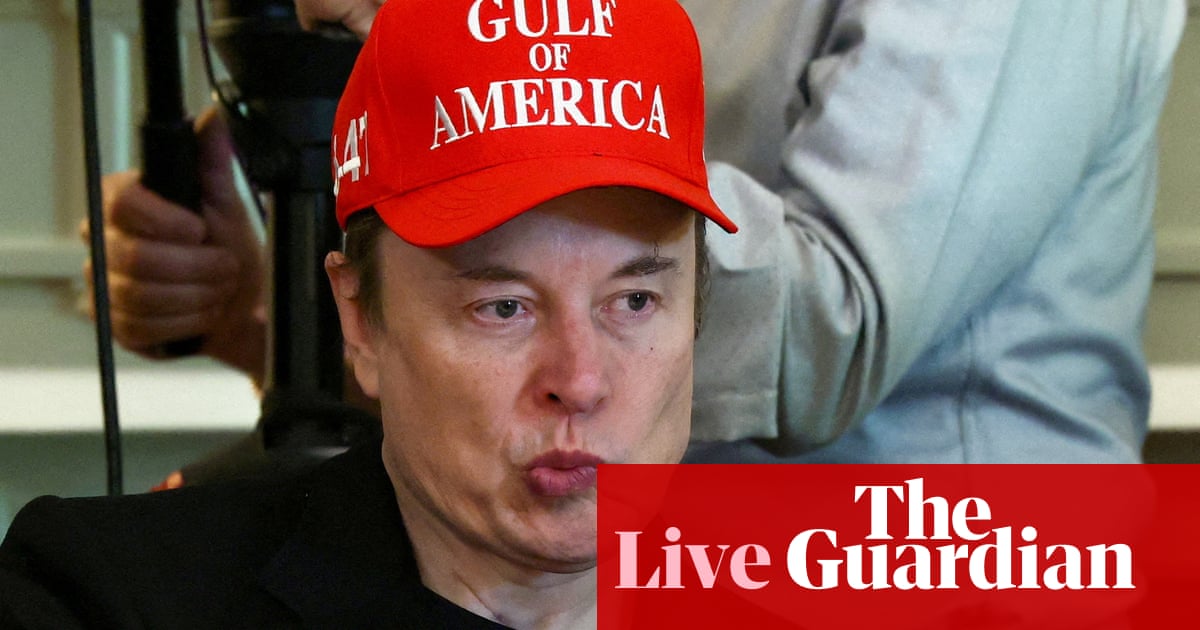Good morning, and welcome to our live coverage of business, economics and financial markets.
Tesla’s chair has denied that the electric car company is looking for a replacement forElon Musk, after the billionaire spent several months focusing on servingDonald Trumpeven as the carmaker’s profits slumped.
The US manufacturer posted a statement on X, the social network owned by Musk, from chairRobyn Denholmsaying the company was “highly confident in his ability to continue executing on the exciting growth plan ahead”, and claiming a report on possible successors was “erroneous”.
It came after a report by the Wall Street Journal that said that “Board members reached out to several executive search firms to work on a formal process for finding Tesla’s next chief executive, according to people familiar with the discussions.” The report said that the board members contacted the search firms a month ago, amid turmoil in Washington.
After Tesla reported a 9% drop in sales in the first quarter of 2025, Musk announced that he wouldreduce his time leading the so-called Department of Government Efficiencyto focus on the carmaker.
Note a small but important discrepancy between Denholm’s denial and the WSJ report: Denholm said that it was “absolutely false” that the “Tesla board had contacted recruitment firms”. The WSJ report suggested that “board members” made the contacts.
Donald Trump’s tariff chaos will cut economic growth in Japan, the world’s fourth-largest economy, according to new forecasts from its central bank.
TheBank of Japancut its economic growth forecast for the fiscal year ending March 2026 to 0.5%, down from 1.1% projected three months ago. It also slashed its growth forecast to a 0.7% expansion for the following fiscal year from 1.0% in January, according to Reuters. The Bank said:
The bank’s inflation forecast suggested that consumer prices would hit its target of 2% annual growth towards the end of 2026, down from 3.6% in March 2025.
9:30am BST: UK consumer credit borrowing (March; previous: £1.36bn; consensus: £1.2bn)
9:30am BST: UK mortgage approvals (March; prev.: 65,481; cons.: 64,800)
9:30am BST: US initial jobless claims (March; prev.: 222,000; cons.: 224,000)
